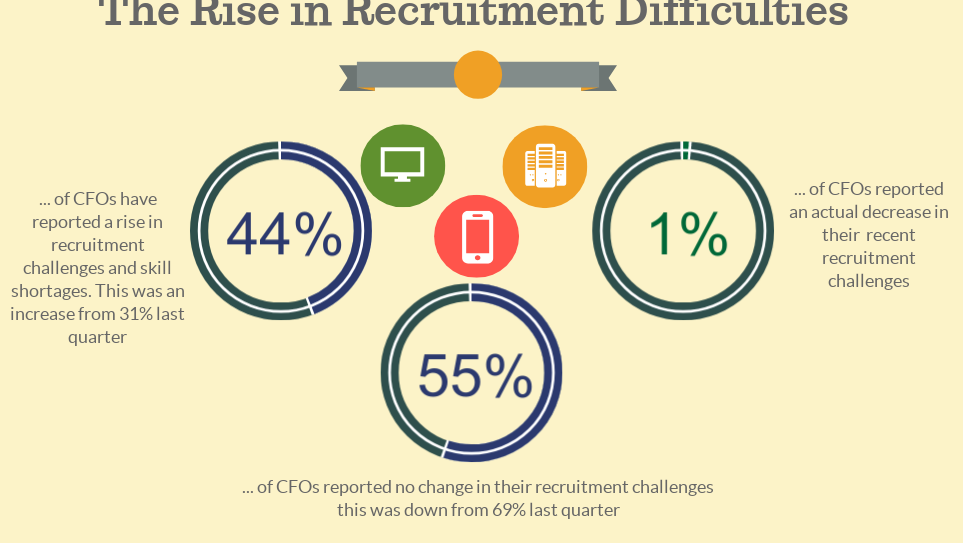
<div class="gl-contains-text">
<table border="0" width="100%" cellspacing="0" cellpadding="0">
<tbody>
<tr>
<td class="editor-text content-text" align="left" valign="top">
<div class="text-container galileo-ap-content-editor">
<div>
<div align="justify">This year's Q3 has seen CFOs adopt a more defensive and watchful stance, which has, in turn produced an increase in recruitment difficulties at the end of Q3. This has been produced primarily by rising uncertainty regarding the nature and timing of Brexit, particularly in the shifting viewpoints on the effect of a deal or no deal. Around three quarters of CFOs expect Brexit to lead to a deterioration in the business environment in the long term, the highest percentage since this question was first posed by Deloitte in the immediate aftershock of the referendum in late June 2016.</div>
<div align="justify"></div>
<div align="justify">Despite the upshot witnessed in Q1 following the announced Brexit Transition deal, Business sentiment continues to be buffeted by Brexit with CFOs once more ranking Brexit as the top risk facing their business, with concerns about a weak UK demand in second place. This was also followed by a rise in international concerns around protectionism and a slowdown within the euro area.</div>
<div align="justify"></div>
<div align="justify">CFOs are thus taking a sharper focus on cost control and building up cash. The trend now is on holding the line, as CFOs place as much emphasis on running defensive balance sheet strategies as they did at the height of the Euro crisis in 2012.</div>
<div align="justify"></div>
<div align="justify">Wage inflation has been quiet in recent years however skill shortages are building up: 44% of CFOs reported that recruitment difficulties have risen in the last three months which is a rise from 31% seen previously.</div>
<div align="justify"></div>
<div align="justify">This rise in difficulties has mainly been seen in areas reporting to Tax, Treasury, FP&A and Auditing. Any sustained rise in wages would clearly add to the challenges facing corporates, as they seek to rein in costs.</div>
</div>
</div>
<div align="justify"></div>
<div class="text-container galileo-ap-content-editor">
<div>
<div align="justify"></div>
<div align="justify"></div>
<div align="justify">The mid-year position of the UK corporate sector is defensive and watchful. With a look towards Q4 future trends, thus far, demand has outstripped supply for; Treasury, Group Financial Reporting, Internal Audit and Financial Controllers as well as Directors of FP&A on a permanent basis.</div>
<div align="justify"></div>
<div align="justify">Clients have been utilising Interim managers for gap management as well as delivering Finance Transformation and change projects across the business. This has resulted in significant cost savings being achieved, when historically businesses would have defaulted to utilising consultancy firms to bridge the gap when key technical finance skills are required.</div>
</div>
<div align="justify">
To find out how Norman Broadbent Interim Management may help your business or to discuss this topic further, please contact Jonathan Stringer, Director of Norman Broadbent’s Finance Practice, for a confidential and initial conversation on:
jonathan.stringer@normanbroadbentinterim.com or +44 (0) 020 7484 0036
</div>
</div></td>
</tr>
</tbody>
</table>
</div>